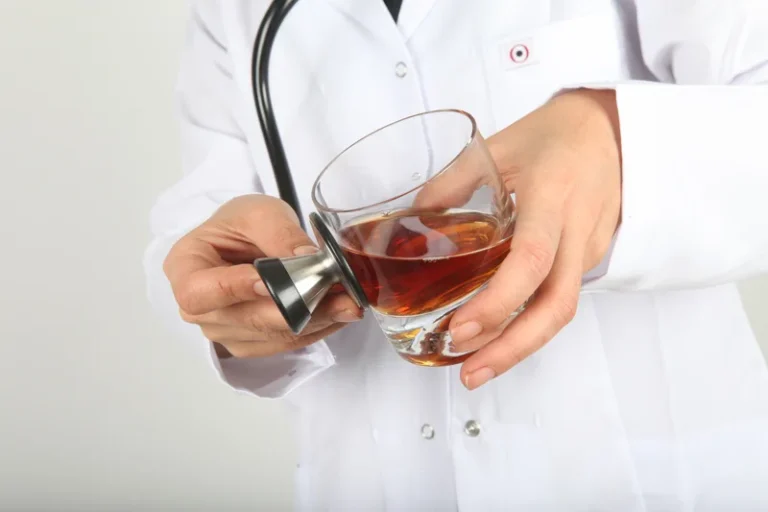
When combined with alcohol, medications for attention and concentration disorders can make a person dizzy and sleepy. In addition, the older we get, the more likely we are to be taking one or more medications that could interact with alcohol. In older adults especially, alcohol use may increase the risk for falls, serious injury, and disability related to balance problems. Because alcohol can adversely interact with hundreds of commonly used medications, it’s important to observe warning labels and ask your doctor or pharmacist if it’s safe to use alcohol with any medications and herbal remedies that you take.
Club drugs
VAR also reported to reduce cravings and decreases the pleasurable effects of cigarettes and other tobacco products, thus helping many tobacco addicts to quit smoking. It is used for smoking cessation and suggested to be more effective than bupropion and nicotine replacement therapy as seen in meta-analysis (Mills et al., 2009; Cahil et al., 2013; Elrashidi & Ebbert, 2014). Neuroinflammatory signaling pathways in the CNS are of current interest as potential pharmacotherapy targets for alcohol dependence.

Some medicines contain alcohol
Any form of illegal drug use can lead to abuse and dependence and cause serious and life-threatening side effects or even death. Alcohol misuse is dangerous if you have hepatitis B or C and other forms of liver disease because it makes you get sick faster and makes the side effects of your hepatitis treatment worse. Hepatitis B and C can be spread in the same ways as HIV, so people with HIV in the U.S. are often also affected by chronic viral hepatitis. Different types of medications interact with alcohol differently and can have harmful effects, even herbal remedies. Whatever kind of medication you’re taking, whether prescribed or over-the-counter, you need to know the risks. In addition, alcohol and Xanax both inhibit the central nervous system, lowering heart and breathing rates, and their effects can be synergistic—meaning that their combined effects can be greater than the sum of their individual effects would suggest.
Cholesterol Medications
- Use of hallucinogens can produce different signs and symptoms, depending on the drug.
- It may be done by family and friends in consultation with a health care provider or mental health professional such as a licensed alcohol and drug counselor, or directed by an intervention professional.
Altogether there are 249 clinical trials that were completed around the world and among them 179 were conducted in the United States of America for the treatment of AUD. Currently, there are 105 ongoing clinical trials that are recruiting for the studies around the world and 75 of them are in the United States at the time of writing this review article (clinicaltrials.gov). The targets currently under investigation are important and are sensitive to stress, withdrawal and addiction. Other physiological systems, such as the immune system, have been shown to influence alcohol seeking and drinking behavior could be exploited for the development of AUD medications (Cui et al., 2011; Blednov et al., 2016).

- If you take any medication—even over-the-counter (OTC) products—drinking alcohol might affect how your meds work.
- Some studies suggest that simply getting help — whether through medication, counseling, or both — is what matters for successful management of this addiction.
- Combining any of them with alcohol can cause dangerous side effects, like liver damage, stomach pain and vomiting, redness of the face, a racing heartbeat, and a sudden drop in blood pressure.
- The risks of mixing antipsychotics and alcohol include impaired judgment, dizziness, drowsiness, low blood pressure, the worsening of a psychiatric condition, an increased risk of suicide, and more.
- The dangers of mixing alcohol with medications can range from increased side effects to potentially life-threatening symptoms, overdose, and even death.
- The recent studies from Anthenelli et al, showed that topiramate was not effective in the patients who were alcohol dependent male smokers.
“If you don’t like taking pills, you already take too many pills, or you aren’t good https://ecosoberhouse.com/article/the-6-stages-of-alcoholic-recovery-timeline/ at remembering to take pills, then this would be a tricky one,” he says. Make your tax-deductible gift and be a part of the cutting-edge research and care that’s changing medicine. People struggling with addiction usually deny they have a problem and hesitate to seek treatment. An intervention presents a loved one with a structured opportunity to make changes before things get even worse and can motivate someone to seek or accept help.
Be sure to check on your prescription drugs, as well as your over-the-counter (OTC) medicines, herbals, and dietary supplements like vitamins and minerals. When combined with alcohol some OTC medicines can have serious drug interactions, too. However, do not stop using any medications without first talking to your doctor. Drugs and alcohol can affect your ability to stay adherent to your HIV treatment regimen. Using illegal drugs or misusing prescription drugs or alcohol can cause you to forget to take your HIV medicines.
Arthritis Medications

Patients who suffer from alcoholism and/or alcohol abuse experience harmful effects and changes that occur in the brain and other organs. Upon stopping alcohol consumption, alcoholic patients experience acute withdrawal symptoms followed by a protracted abstinence syndrome resulting in the risk of relapse to heavy drinking. For the past few decades, several drugs have been available for the treatment of AUDs. These drugs include medications to reduce or stop severe alcohol withdrawal symptoms during alcohol detoxification as well as recovery medications to reduce alcohol craving and support abstinence.
- Pexacerfont treatment did not show any positive effects on alcohol craving, emotional responses and anxiety (Kwako et al., 2015).
- You should not share needles, syringes, or works for injecting silicone, hormones, or steroids for the same reason.
- Some of these antidepressants come with additional side effects when mixed with alcohol.
- If you’re drinking excessively or regularly, you are increasing the risk of adverse medication reactions.
- Medications to treat ADHD are stimulants, a broad class of drugs that increase the activity of the central nervous system.
These findings support the usage of ibudilast as a potential treatment for alcohol dependent patients (Bell et al., 2016). Prescription drugs and alcohol can be a dangerous combination, Volkow says. Painkillers and booze are perhaps the worst to mix, because both slow breathing by different mechanisms and inhibit the coughing reflex, creating “a double-whammy effect,” she says, that can stop breathing altogether. Alcohol also interacts with anti-anxiety drugs (including Xanax), antipsychotics, antidepressants, sleep medications and muscle relaxants—intensifying the drugs’ sedative effects, causing drowsiness and dizziness, and making falls and accidents more likely. A 2010 study published in the Canadian Journal of Public Health reported that automobile drivers were much more likely to weave and speed if they were under the influence of drugs like Xanax in addition to alcohol than if they had consumed alcohol alone.
- Fenofibrate (150 mg/kg) and tesaglitazar (1.5 mg/kg) decreased the novelty response and increased acute ethanol withdrawal severity and ethanol-induced CTA.
- 34 alcohol dependent patients were enrolled in this study and the blood ORX levels were measured before and after the 2 weeks of abstinence period.
- Overall, both Org and Org promoted a robust and long-lasting reduction in voluntary alcohol consumption and reversed compulsive relapse-like alcohol drinking (Molander et al., 2007; Vengeliene et al., 2010).
FDA Approved Medications for Alcohol Use Disorders
The effects of mixing alcohol with medication also depend on certain individual factors. For example, women can experience the effects of mixing alcohol and medications more severely than men because of differences in metabolism. In some cases, mixing alcohol with medications can lead to an overdose or alcohol poisoning—both of which Alcohol and Pills are potentially life-threatening medical emergencies.